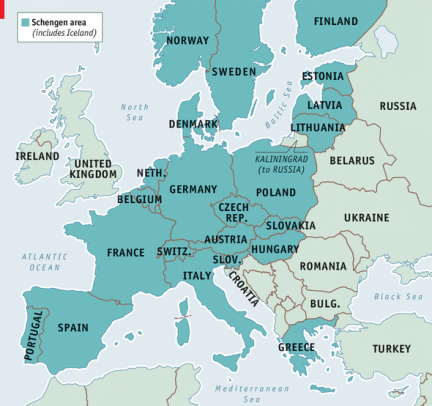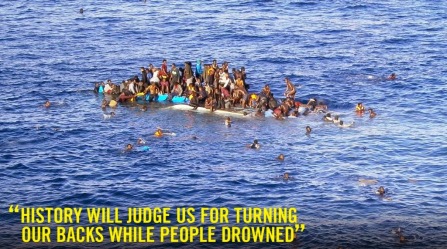Europe has always been a very interesting continent. Throughout the pages of history, Europe has had its share of bloody wars, colonies, empires and democracies. The frontiers of Europe have changed drastically since the start of the 20th Century. It is no wonder that two of the biggest wars in human history, the two World Wars took place with Europe as its center-stage. Asia and Europe have been the center of enlightenment and progress throughout history, Asia leading in the earlier days, and Europe assuming the mantel since Alexander and the Roman Empire and later from the 14th Century, called the Renaissance period. Fast forward to 20th Century, Europe was broken, joined and again broken and joined in a space of around 100 years from the Franco-Prussian war to the Fall of the Berlin Wall.
Thence due to so many geopolitical changes in Europe, it has also witnessed many mass-exodus. From the Romans fleeing from the Goths, to Jews absconding Germany, and the mass movement of Slavs, Croats and Bosnians during the Yugoslavia crisis; mass exodus has been a characteristic of European geopolitics.
But during the advent of 21st Century, this has happened again. Today Europe is facing mass movements to and from different regions and countries. First there was the Bosnian crisis which prompted this, then it was the advent of ISIS, which forced people from Syria and Iraq into Europe, along with this, the uncertainty of Greece exiting Eurozone or not and its preceding bailouts also made people look to rosy shores, and the recent skirmishes on the Channel Tunnel between the French police and Somalian and other African immigrants is testimony to that.
Freedom of movement has been a part of the European project since the 1950s. Yet Europe’s borderless zone only really began to become a reality in 1985, when several members of the EU, including France, Germany, Belgium, Luxembourg and the Netherlands, met in a village in Luxembourg called Schengen to sign an agreement to eliminate all internal border controls. This “Schengen agreement”, which came into effect in 1995, eliminated border checks among its members and allowed foreign visitors to travel throughout the area using one visa. Today a total of 26 states, both within or outside the EU, are members (see map).
Summer 2015 has witnessed an unprecedented number of asylum seekers, chiefly in countries which are friendly to them, mainly Germany and Sweden. This can be known from the fact that in 2015, Germany expects to receive 800,000 asylum applications, four times that of 2014. Europe, which was the pioneer in the introduction of borderless states, is now being forced to rethink its policy. The recent incidents of train attacks on the Amsterdam-Paris train and the police-migrant clashes at Dover and Calais has prompted many analysts to put a question mark on the Eurozone and the European parliament’s policy of borderlessness.
But these apprehensions are not just of the analysts’ alone. Governments who are a part of the Schengen agreement are also now worried. The influx of migrants puts an undue strain on those economies who willingly accept these migrants case in example of Germany. On August 20th Thomas de Maiziere, Germany’s interior minister, warned that Germany’s Schengen membership may be unsustainable unless other countries share the burden of accepting asylum seekers. Closed borders would mean that Germany could turn away people at its borders.
Another interesting part of the agreement is that the Schengen allows for border checks to be introduced for reasons of national security. France put up its borders after the London tube bombings of 2005 and Portugal did it during the Euro 2004 football tournament. But if controls remain for more than short periods, they risk reversing decades of European integration.
Apart from all this, one big factor that is not being given its due weightage is terrorism. The attacks on the Amsterdam-Paris train are only one-side of the situation. Border control activists are also highlighting the fact that the lack of current border checks is helping ISIS and Chechen recruiters – who look for youth in vulnerable parts of Europe, and source them to Syria via Greece and Turkey. This situation was also highlighted by Gibraltar, which recently sealed its border against immigrants.
To conclude, a grave geopolitical crisis is brewing in Europe, already plagued with enough problems in its hands because of its economy. The questions are many, and the solutions few and difficult to digest. European shylocks will be definitely claiming their pound of flesh, but will they get it is a question for us to think upon?


